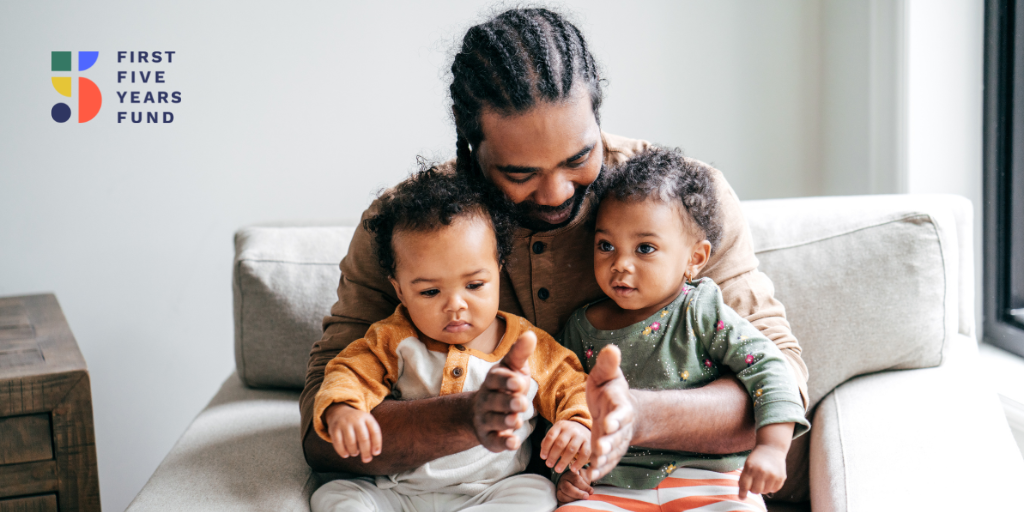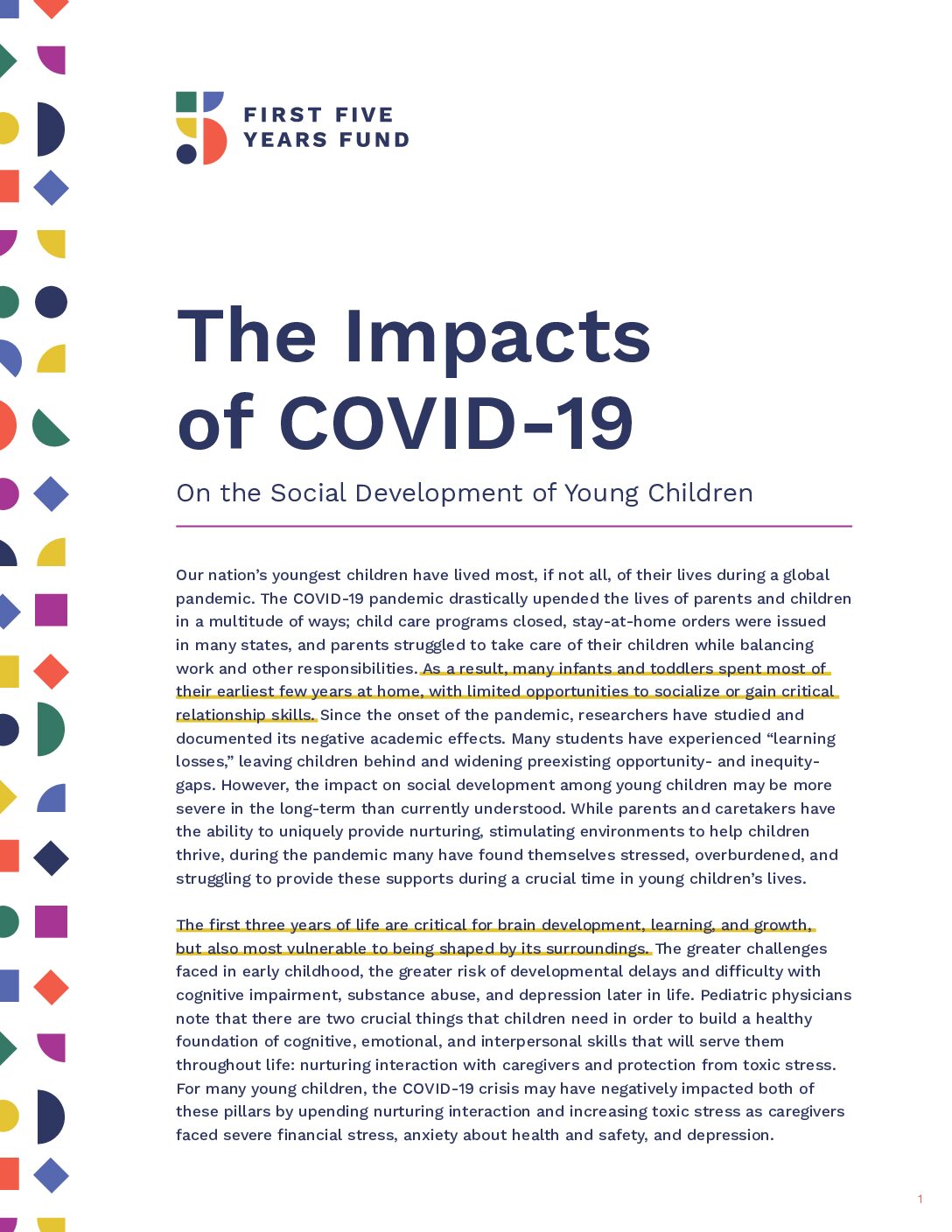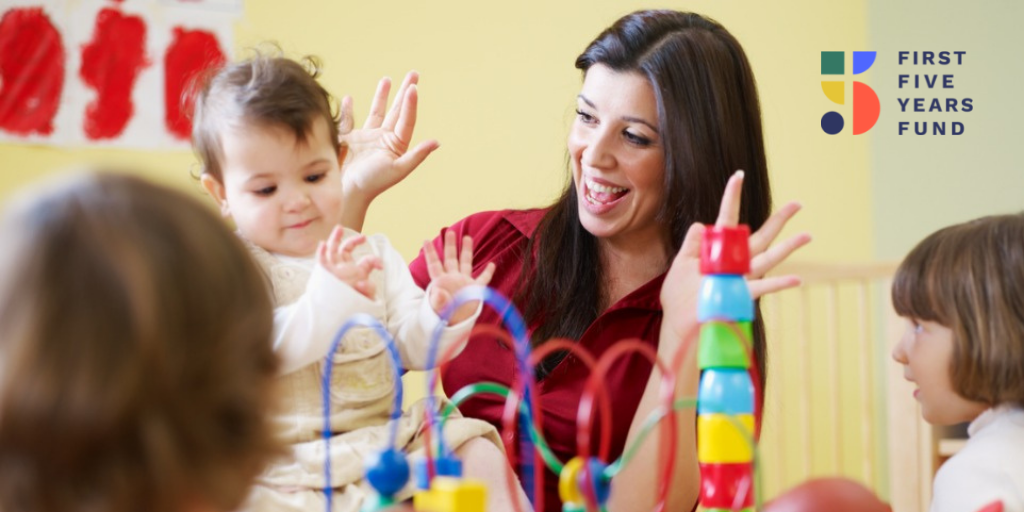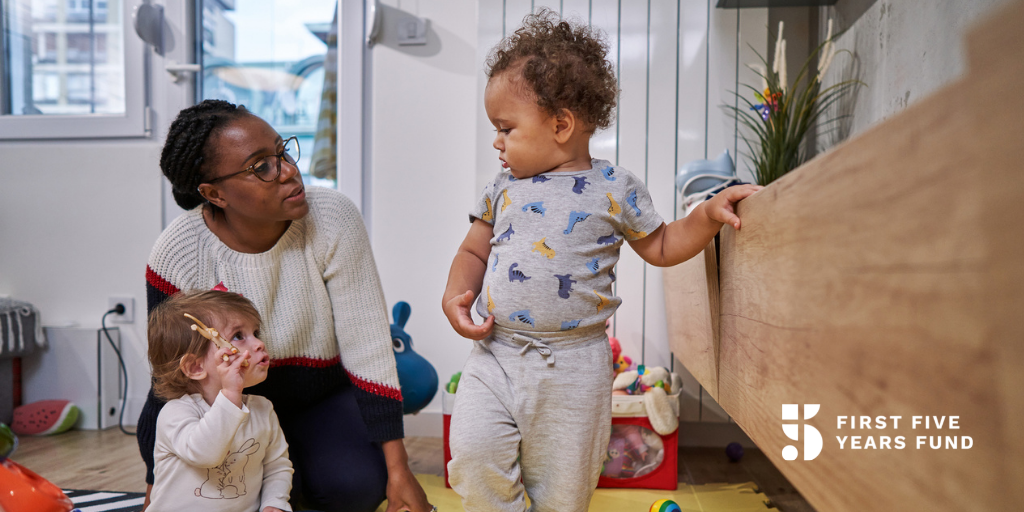How Has COVID-19 Impacted Infants and Toddlers’ Social Development?

Our nation’s youngest children have lived most, if not all, of their lives during a global pandemic. The COVID-19 pandemic drastically upended the lives of parents and children in a multitude of ways: child care programs closed, stay-at-home orders were issued in many states, and parents struggled to take care of their children while balancing work and other responsibilities. As a result, infants and toddlers spent most of their earliest years at home, with limited opportunities to socialize or gain critical relationship skills. While many students have experienced academic “learning losses,” the impact on social development among young children may be more severe in the long term than currently understood.
During the pandemic, infants and toddlers had limited social interaction and play-based learning, and many experienced high levels of stress. According to medical research, young children who have experienced pandemic-related chronic stress and trauma without the buffer of a nurturing supportive relationship can face an increased risk of developing emotional, behavioral, and cognitive problems. Further, recent academic research demonstrates that many young children have experienced delays in cognitive and motor skills, and programs have reported increases in behavioral issues. According to a Columbia University research study, babies born in the pandemic scored lower in gross motor, fine motor, and social-emotional development than babies born before the pandemic. Children with poor or under-developed social and emotional skills display more challenging behavior, including anger, withdrawal, anxiety, and aggression. Many skills are gained and strengthened in interactions with others and in early learning settings, and thus they are also key predictors of school readiness, future academic achievement, and positive life outcomes.
90% of brain development occurs before kindergarten, however, there has been a steep decline in state pre-k enrollment and early intervention services since the start of the pandemic. This has potentially profound long-term effects because overwhelming evidence demonstrates that children who enter kindergarten behind are more likely to stay behind throughout their academic careers. During the 2020-2021 school year, enrollment in state pre-k programs dropped for the first time in two decades and decreased in nearly every state, with a handful of states experiencing more than a 30% decline. This means more children than usual will be entering the classroom learning setting for the first time this year, and possibly further behind. Additionally, since the onset of the pandemic, fewer young children have been receiving early intervention services, and there has been a decrease in referral rates. From 2019-2020, the number of children from birth to age two served by IDEA Part C declined by 63,847 or 15%. All but 3 states (DC, SC, WY) reported decreases in the percent of children served. Underidentification could create an uptick in referrals in elementary schools in the next few years. On top of that, children who were eligible but did not receive services due to the pandemic will likely need increased support.
There are many unknowns about what developmental, social, emotional, and mental health impacts the COVID-19 crisis has had on young children. These research findings emphasize the necessity to ensure COVID-induced harms are addressed and don’t affect future development, learning, and success.
Read the full paper below to learn more about the importance of social interaction skills and play-based learning, how COVID-19 likely increased toxic stress and exacerbated Adverse Childhood Experiences (ACEs) for many children, as well as how states could consider using existing federal funding to implement, strengthen, and/or expand certain policies.
Subscribe to FFYF First Look
Every morning, FFYF reports on the latest child care & early learning news from across the country. Subscribe and take 5 minutes to know what's happening in early childhood education.




